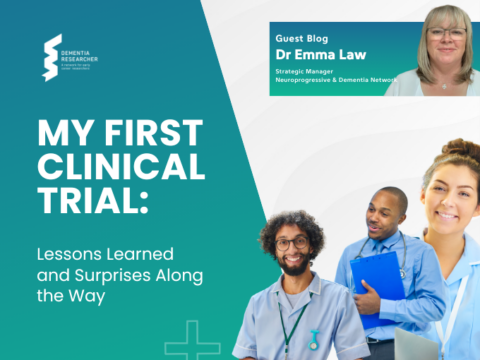
Exciting news: The first journal article from my PhD work was published last week in Dementia. So I thought I would try a blog post to accompany it.
Now I have been chatting to a few people about how valuable it can be to blog about the article to coincide with its publication. I have also found some advice on how to do this from a brief internet search. The advice I have collected so far recommends writing a fairly descriptive heading summarising some of the main findings (see above) and using relevant and tweetable or hashtag type phrases in no more than 140 characters and creating a trailer paragraph or set of points to pique interest before the article begins (see starting points below). Then more or less omitting the methods (other than to say it is a survey), aiming to cut it all down to less than 1000 words (ooooo let’s see how that goes), providing only a line or two of introduction and discussion start the article with something high impact- a quote or something topical (hmm not sure I can quite get that down), move into the main findings and unpack it a little, before finishing by summarising things in a slightly different fashion that perhaps directs the reader to the next step in the research you are doing. Lastly adding the full title of the article and the link to the open access version.
So, if you would like to cut straight to the article the link is at the end, but otherwise I have tried to summarise it in the way described above. Here goes-
- SLTs report a growth in the number of people with language led dementia referred to their services, yet identify ongoing barriers to accessing their services for many others.
- People with language led dementia are more likely to get referred to SLT for interventions if they are from high socio-economic background and from Scotland or the south of England
- SLTs and other health professionals need to build a clearer care pathway so that referrers know where to send people with language led dementia.

Language led dementia (or primary progressive aphasia; PPA) is associated with Alzheimer’s disease and frontotemporal dementia. People present with a gradual loss of language over time – for example word finding difficulties, difficulties sequencing sounds or sentences or difficulties understanding or in reading and writing. It seems logical that speech and language therapy could be useful for these people. This UK wide survey of speech and language therapists demonstrates that the number of people with PPA being seen by SLTs are slowly increasing with respondents reporting on average having two or three on their caseloads in the last 18 months, an increase from the previous period. Most people with PPA are being seen in outpatient or community settings across, referred by neurologists (who perhaps have some experience of the role of SLTs from their work with post stroke Aphasia) for word finding difficulties but not much else. The people with PPA being referred are generally English speaking, from higher socio-economic backgrounds and in their 60-70s and are being referred 1-2 years after diagnosis. SLTs reported that there remain many barriers to accessing SLT for this group of people; including a lack of knowledge about the role of SLT and restrictive service criteria that prevents them from being seen in rehabilitation services. Where people are being seen, they are often unaware of what their diagnosis means. Where SLT are able to offer therapy (many services are not able to offer anything) they are able to offer an average of four therapy sessions where they prioritise communication training above other intervention approaches. Yet the research evidence to date in this area of speech and language interventions for SLT is historically predominantly focused on impairment based tasks such as word relearning. This highlights the need for further research demonstrating the effectiveness of the communication training approaches. This demonstrate a gap in the clinically relevant research literature which our forthcoming work on developing and piloting a communication training intervention for people with PPA and their families entitled Better Conversations with PPA (BCPPA)- the protocol is due for publication in the very near future (Volkmer, Warren, Spector, Beeke, In press, Pilot and Feasibility Studies)
So, my current article is entitled:
“Speech and language therapy for primary progressive aphasia: Referral patterns and barriers to service provision across the UK” and can be found here: https://journals.sagepub.com/doi/abs/10.1177/1471301218797240?url_ver=Z39.88-2003&rfr_id=ori:rid:crossref.org&rfr_dat=cr_pub%3dpubmed
Author
Anna Volkmer is a Speech and Language Therapist and NIHR Doctoral Research Fellow working in Language and Cognition, Department of Psychology and Language Sciences, University College London. Anna is researching Speech and language therapy interventions in language led dementia.
You can follow Anna on Twitter Follow @volkmer_anna

 Print This Post
Print This Post





